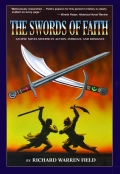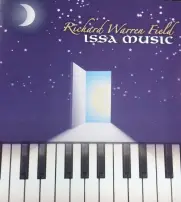Books-Into-Movie Commentary – “Sarah’s Key” August 7, 2011
Posted by rwf1954 in books, books into movies, historical fiction, literary commentary, movie commentary, movies, movies based on books, Sarah's Key, Tatiana de Rosnay.Tags: #historical, books, books into movies, historical fiction, movie commentary, movies, movies based on books, Sarah's Key, Tatiana de Rosnay
trackback
(Richard Warren Field wrote the award-winning novel,
The Swords of Faith. Read why this book will make a great movie.)
This post will discuss the movie “Sarah’s Key,” and how the movie compared to the novel Sarah’s Key by Tatiana de Rosnay that it was based on.
The movie followed the book closely. The key plot contours, the big events, were not changed—there were only small variations of a few details. The history of the events in 1942 as offered by de Rosnay was not changed at all. The moves back and forth between the present and the past take place more frequently during the first two-thirds of the book (about every four to five pages), but the concept is the same. (It would have been jarring for the filmmakers to cut back and forth as often as de Rosnay does in the book.)
A few specific comments about what did or did not vary between the book and the movie:
- The entire sequence of events with “Sarah’s key” is straight from the book. I wondered if filmmakers would soften the blow and not give us a small child starved and/or suffocated to death, trapped in a small space, abandoned. They did not flinch from this (and I’m glad they didn’t). Perhaps the one concession to sensibilities was not to show the rotting body. That said, there is a small variation—in the book, Sarah’s brother suggests the hiding place and asks to be locked in. His sister is against it at first but goes along with it. The change in the movie makes sense as it heightens Sarah’s ongoing, growing guilt over her brother’s death.
- The present-day story in the book is told in the first person from Julia Jarmond’s point-of-view. The movie keeps that feel—this is definitely Julia’s story.
- Another key element of the movie, Julia’s discovery that her husband Bertrand’s family took the apartment after a Jewish family was deported, is also straight out of the book. Though this basic plot element is present, there are some variations:
- Julia immediately asks Bertrand about his family’s apartment in the book. (There is no surprise later on after Julia discusses the issue with Bertrand’s father.) Bertrand says he is unaware the apartment was taken from deported Jews, but his attitude seems to be “so-what.”
- Edouard (Bertrand’s father, who as a boy was present when they found Sarah’s dead brother) confronts Julia about discussing the apartment with Mamé immediately, telling Julia not to discuss the apartment with her. (There is no series of unreturned calls.) But when Julia asks what he knows, he rushes off the phone, feigning some sort of bad connection. He confronts Julia at her next visit with Mamé (they do not usually visit Mamé at the same time), seeking her out. He again asks her not to discuss the apartment with Mamé, but reveals his awful burden—he was there when Sarah’s brother was discovered. (In the book, this event melds masterfully with Sarah’s terrible discovery after her return to Paris with her soon-to-be adoptive parents.) Edouard does not hide this from Julia—he seems anxious to share the information with her, encouraging her to find out more about the displaced Jewish family (which eventually does occur in the movie as well). Julia delivers the news, as in the movie—Edouard’s father sent money to Sarah’s adoptive parents secretly.
- In the book, no one ever tells Sarah the family that took over her family’s apartment in Paris, the family present when her brother’s body was found, sent regular payments for her care. That is one of the reasons driving Julia to find Sarah, and eventually Sarah’s son—to deliver the information that her in-laws, her family, did care about the people they had displaced.
- I do not recall Sarah being sick at the camp as she is in the movie. I checked the book again and did not see this. The book makes more sense as Sarah runs across a large field to escape, a physically demanding activity for sick girl.
- Sarah and another girl do escape together as occurs in the movie. The French policeman who lets them go, in the book, is a policeman Sarah knows from the neighborhood. In the movie, he is a compassionate policeman Sarah seems to have established a quick, sympathetic rapport with.
- The Bertrand story-line, husband wanting the abortion, is straight from the book with only trivial variations. This includes Julia not getting an abortion and the marriage breaking up. In the movie, Bertrand is stressed at work, a big deal with the Chinese pending. Maybe that was added to make this thoroughly unlikable character a little more understandable.
- Sarah’s companion in the escape does get sick and die, as portrayed in the movie. The storyline with the Dufaures, including going to Paris with them, growing up with them and eventually leaving for New York, is straight from the book. This includes the daring bribe on the train to address Sarah’s lack of identity papers.
- The story of Sarah’s trip toNew York, and Julia’s first encounter with Sarah’s son (including his angry reaction inItaly) is directly from the book. And the ending, with Julia and Sarah’s son sitting together in New York, with an implied chemistry between them but no further indication that they might end up together, is also straight from the book.
- I do not recall any reference in the book to “bombings of civilians in Afghanistan and Iraq.” This looks like a political point inserted by the filmmakers.
- Julia’s child’s name is Sarah; Lucy is the name of little Sarah’s giraffe—straight from the book.
Sarah’s Key is a well-crafted work of modern fiction. It is one of those books that is hard to put down. The movie seemed to hit an emotional peak with the discovery of Sarah’s dead brother, and then had a hard time getting to that peak again. The book keeps enough suspense, enough mystery, to drive the reader forward. The movie adopted these elements from the book, so tells a compelling story about a subject matter with a glut of tragic stories told, but sadly, still many untold.
Previous Books-Into-Movies Posts:
Books-Into-Movie Commentary – “Snow Flower and the Secret Fan”
Books-Into-Movie Commentary – Special Easter Edition: “Ben Hur”
Books-Into-Movie Commentary: Jane Eyre



There was one difference that I seem to remember (I can’t be certain whether it’s actually like this, since it was a while since I’d read the book when I saw the movie), but according to my memory, the book covered all of Julia’s discoveries about Vel d’Hiv, especially her surprise over how little French people actually knew about it. In the movie, she seemed to know quite a lot already – an understandable change I guess was made to save time. Like I said, I can’t be sure whether it was actually like this, but I seem to remember it was, and I thought it was quite a big change in it’s own way (compared to how small all the other changes are).